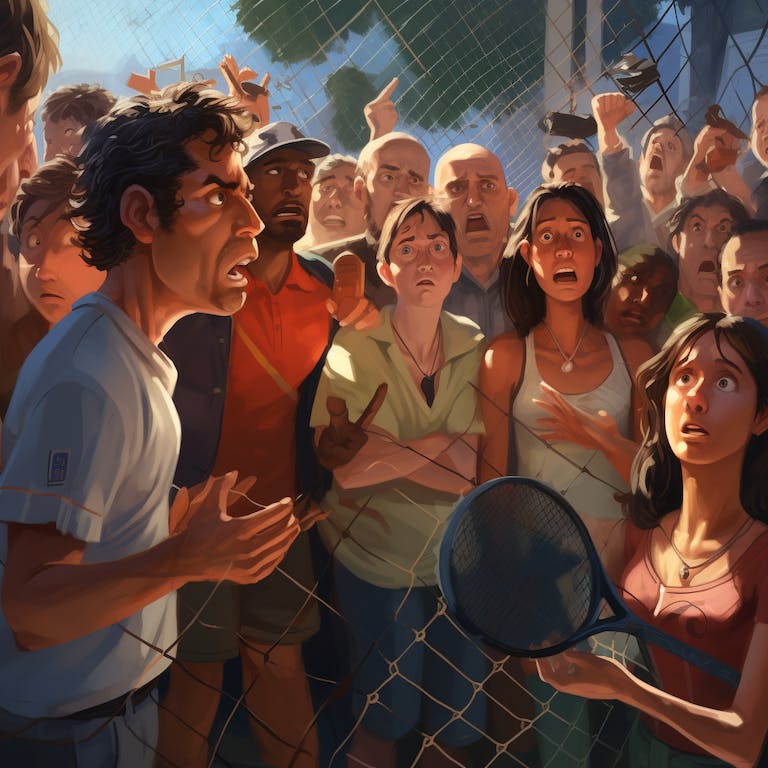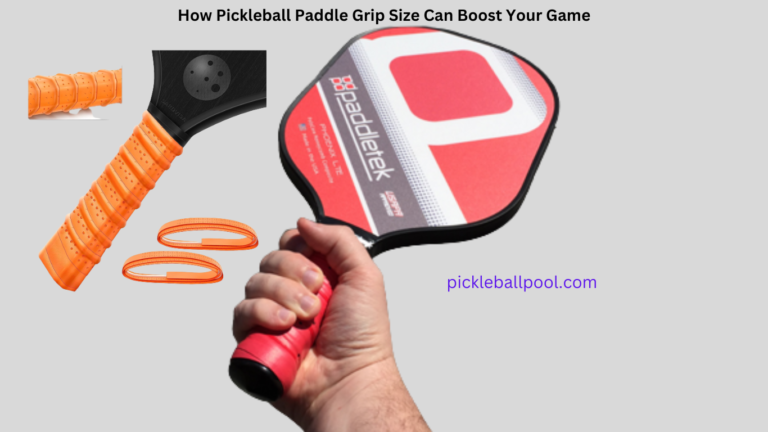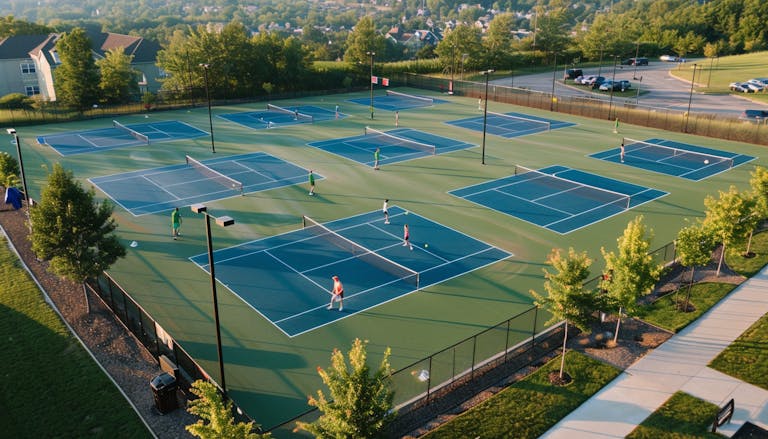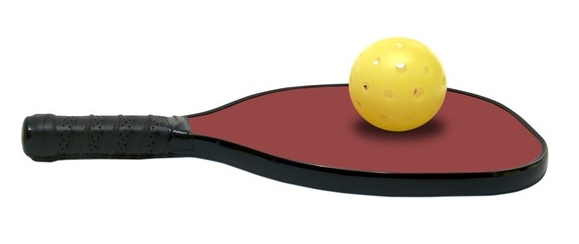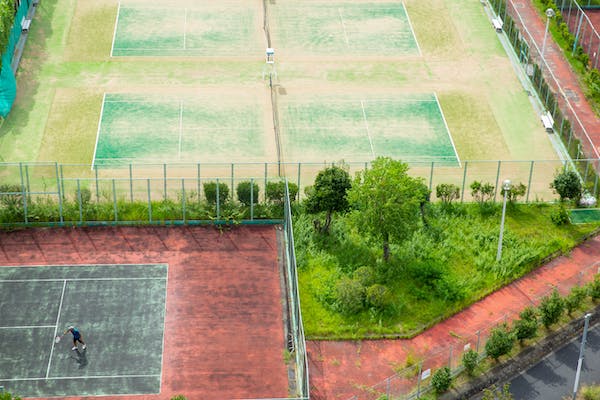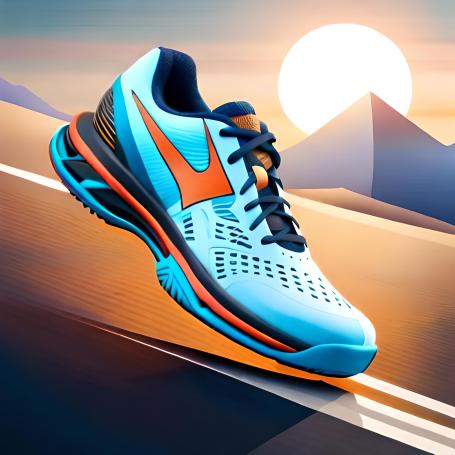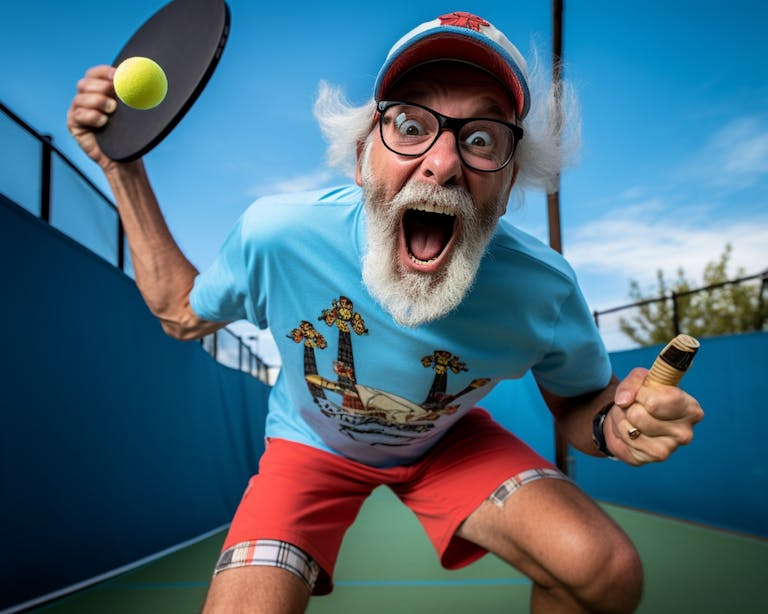Why Do Some People Hate Pickleball? Uncovering the Surprising Controversies
Pickleball is one of the fastest-growing sports in the U.S., with nearly 5 million players, according to the Sports & Fitness Industry Association.
Many people are joining in on playing pickleball, but some people really don’t like the sport. Why do people hate pickleball ?
The reasons range from noise complaints and arguments over courts to how players behave. Other reasons include myths about pickleball and comparisons to other sports.
By looking at these controversies, we can understand the dislike better and find ways to get along. Read on to learn about the main reasons people hate pickleball today.
Pickleball opposition is fueled by myths and misconceptions.
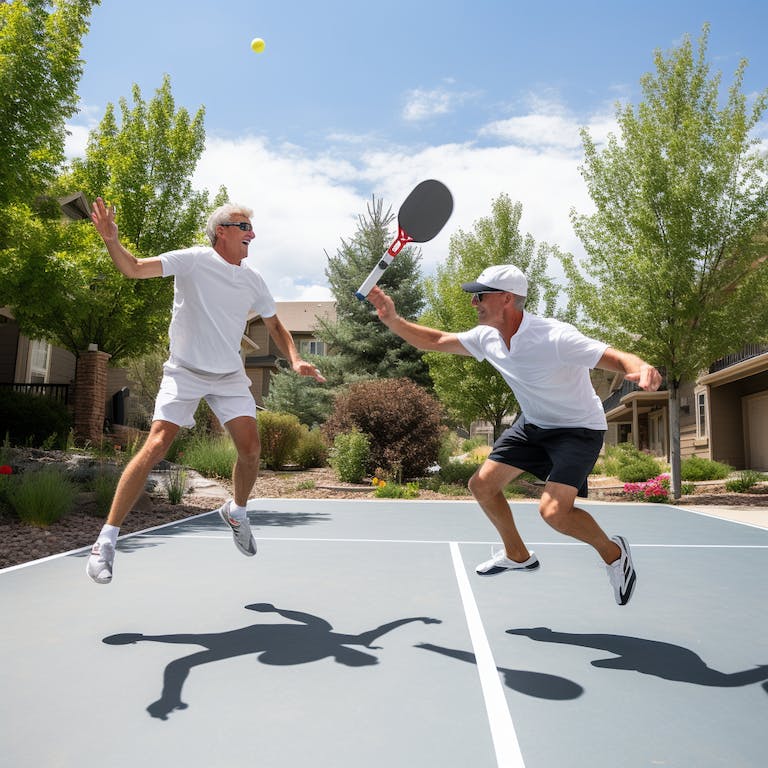
Some people don’t like pickleball because they don’t understand it. The sport is still new and not well known, so there are a lot of wrong ideas about it.
Common false pickleball narratives include:
- Pickleball is only for seniors and retirement communities.
- The game is wimpy or dinky compared to “real” racquet sports.
- It requires minimal athleticism or skill.
- Pickleball courts and gear are shoddy or second-rate.
Pickleball is popular with people of all ages, from kids to college students to middle-aged adults. Matches can be very competitive and require advanced skills. Top players are very quick and skilled.
Tournaments offer big prizes at important places. As more people learn about pickleball, old ideas about it will hopefully go away. Teaching people about modern sports can help fix wrong ideas.
People Hate Pickleball because they think it’s too similar to tennis and badminton.
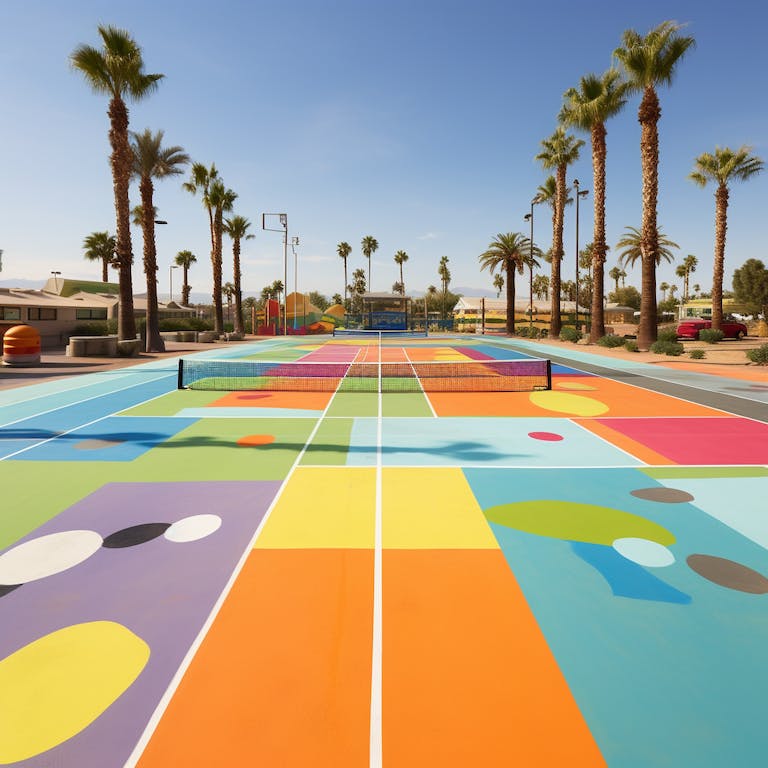
Pickleball faces pushback because it’s seen as the new sport compared to tennis, badminton, and ping-pong.
Tennis fans may find pickleball too easy and not as competitive due to its smaller court, lower net, plastic ball, and double bounce rule.
Badminton enthusiasts may consider pickleball slow and mundane in comparison to their fast-paced feathered shuttlecock game. The sponge paddles also lack the technical nuance of badminton racquets.
Even table tennis players may deride pickleball as just a bigger, outdoor version of ping-pong without requiring as much spin finesse and reflex quickness.
Each sport has its own unique traits and appeals. But comparing pickleball to other sports can make it seem less important than it really is.
Cities should not just change tennis courts to pickleball courts. Teaching players about the special qualities of each game can help them see pickleball in a new way.
Understanding that pickleball combines elements of different racquet sports can give a broader view.
People hate pickleball because of the clashes it creates due to noise complaints
Many people don’t like pickleball because it’s noisy. When the paddle hits the ball, it makes a loud sound that can bother people.
Studies have found that the noise can be as loud as 60 to 70 decibels, which is louder than other sports. This can be a problem, especially when people play early in the morning or late at night.
The noise can travel far and disturb neighbors who want peace and quiet. In retirement communities and condos, there are often arguments about the noise from pickleball courts. As more courts are built, more people who don’t play pickleball complain about the noise.
Some solutions include restricting pickleball hours, installing sound barriers, or using “quiet” pickleballs to dampen the acoustics. However, noise remains a leading “pickleball hater” grievance. The fact that the media and pickleball enthusiasts played up the comparisons with tennis did not help.
People Hate Pickleball because due to conflicts over shared space and access.
Pickleball’s popularity has led to a high demand for more courts. This has caused conflicts over using existing outdoor spaces for pickleball courts.
Converting tennis or basketball courts into pickleball courts upsets players of those sports, who feel like they are losing their recreational facilities.
Tennis players, in particular, are upset because they have had priority access to the courts for a long time.
Similar conflicts have arisen between pickleball and other sports like racquetball, squash, and volleyball. The competition for court space has strained relationships and led to negative feelings towards pickleball.
Careful planning and flexible scheduling can ease court-sharing tensions. However, as pickleball becomes more popular, conflicts over access to the courts will probably continue.
People Hate Pickleball because Safety Concerns Over Speed and Proximity
Pickleball haters also worry about safety. They say that the fast plastic balls can hit people nearby and hurt them. Unlike tennis balls, pickleballs hurt when they hit you.
The smaller confines also mean players are in closer proximity during rallies. Diving for shots or chasing drop shots can result in awkward collisions and falling mishaps.
Greater emphasis is needed on boundary awareness and personal space etiquette compared to wider-dimension court sports. Formal safety rules lag behind pickleball’s booming participation. The wooden paddle whacking the hard plastic ball makes an eardrum-piercing pwock!
While most experienced players adapt to the tighter spaces and faster ball, safety concerns remain a common refrain among skeptics pointing out pickleball’s potential perils.
You May Like: are wood pickleball paddles good
Player Behaviour and Etiquette Issues
Pickleball is still figuring out the right way for players to behave. Some players are not following the rules or showing good manners, which is causing problems. Frequent grievances include:
- Bickering with partners or opponents mid-match
- Not keeping proper score
- Failing to call balls in or out honestly
- Not waiting for balls to stop before walking on court
- Hogging courts beyond designated slots
Rude player behavior upsets people who follow the rules. It creates a bad image of pickleball players as undisciplined or unsportsmanlike.
If we make clear rules for how to behave in pickleball and make sure everyone follows them, things will get better over time. But for now, people still see pickleball players in a negative way. Some people say, “But I don’t want to play pickleball.”
Association Politics and Growing Pains
As activities grow, they face challenges and power struggles. Pickleball is no different. Different groups, tournaments, and teachers create disorganization and fighting.
Disagreements have happened about managing tournaments, getting sponsors, and uniting internationally. Powerful people fight for control and money. Different leagues and events have different rules and standards.
Conflicts in marketing and branding show disorganization. This chaos makes players unhappy and gives critics a reason to say the sport is unprofessional. Hopefully, in the future, pickleball leaders will agree on how to organize and rank players. This would help more people accept the sport.
people hate pickleball because Cost and Accessibility Concerns
Some people say that pickleball can be expensive, making it hard for everyone to play. The equipment, like paddles, balls, shoes, and nets, can cost a lot, similar to tennis gear.
Joining a club or reserving a court can also be expensive. Getting lessons or coaching costs even more money. These costs make it hard for people with lower incomes to play pickleball, even though the sport is supposed to be simple and easy for anyone to try.
To change this, we can make more free public courts and cheaper equipment available. We can also do more to reach out to communities that don’t have as much access to the game. This will help make pickleball more inclusive for everyone.
Health Benefits Overshadowed by Trivial Associations
Beyond just the enjoyment and recreation pickleball clearly provides, the sport also delivers measurable physical and mental health benefits. Yet these advantages strangely remain overlooked amid the prominent trivial debates discussed above.
Research has found that playing pickleball can improve aerobic capacity, hand-eye coordination, strength, and agility. Regular play can also help prevent diseases and maintain mobility and reaction time as we get older.
The social aspect of pickleball can also provide mental benefits by promoting community bonding and stimulating the brain. However, the health benefits of pickleball are often overlooked due to arguments about noise and court stripes.
It would be helpful to focus more on the fitness benefits to change the conversation in a positive way.
Annoying Proselytizing from Pickleball Zealots
Many people dislike pickleball because of its overly enthusiastic fans. These fans talk nonstop about pickleball and try to convince others to play. They also put down other sports and pressure their friends to play pickleball.
This pushy behavior turns people off, even those who might have been interested in trying the game. It’s better to let people find out about pickleball on their own, rather than trying to force them to like it.
Pushing too hard can make people instinctively reject the idea, even if they might have been curious about it.
The Final Take on why do people hate Pickleball?
Many people don’t like pickleball. This might be because they don’t like new things that become popular quickly.
People who have been playing for a long time might feel threatened, and those who are really into it might want to protect their space. But if we deal with real concerns about noise, safety, costs, and how organized it is, pickleball can keep growing as a sport.
We should also be patient, include everyone, and talk nicely to each other to make things better. Having fun and staying active is what’s important. By being flexible and solving problems, we can convince people who are unsure about pickleball.
And it’s okay to not agree with people who still don’t like it. Being tolerant and understanding can help us all get along, even when things are changing. Some people might still not like pickleball, but most of us can be happy about new ways to have fun and be healthy together.
The reasons people might dislike pickleball often stem from personal preferences, preconceived notions, or resistance to change.
FAQs: Answering Common Pickleball Questions
What exactly is pickleball?
Pickleball is a quick racket sport played on a small court with a low net using a plastic ball and solid paddles. It’s a mix of tennis, badminton, and table tennis.
Who invented pickleball and when?
In 1965, Joel Pritchard, Bill Bell, and Barney McCallum created pickleball on Bainbridge Island, Washington. The name might come from Pritchard’s dog Pickles, who liked to chase balls.
How many people play pickleball in the U.S.?
Pickleball has about 4.8 million players in the U.S., according to the Sports & Fitness Industry Association. Participation has been growing rapidly in recent years.
What equipment is needed to play pickleball?
You need a paddle, pickleball balls, good athletic shoes, and a court with a net to play pickleball.
What are the basic rules and scoring for pickleball?
Pickleball games go up to 11 points, and you have to win by 2. You can only score points when you’re serving. When you serve, you have to hit the ball underhand and let it bounce twice. Also, you can’t hit the ball in the air within 7 feet of the net.
Who plays pickleball most frequently?
Pickleball used to be mainly for seniors, but now younger people also play. Adults aged 18 to 34, 35 to 54, and over 55 all participate equally.
How fast can pickleballs travel during tournament play?
Top players can hit pickleball serves and returns at speeds over 50 miles per hour, which is faster than a professional baseball pitcher’s throw.
What health benefits does pickleball provide?
Research indicates that playing pickleball can improve aerobic fitness, agility, strength, hand-eye coordination, and reflexes. It also offers social interaction through playing with others.
How can pickleball be played more safely?
Make safety a priority by leaving enough space around courts, keeping the floor safe, calling balls loudly, and learning the right way to stand on the court.
What etiquette should pickleball players demonstrate?
In pickleball, it’s important to wait for the ball to stop before going onto the court, keep score correctly, avoid delaying the game, and show respect to your opponents.
How is pickleball governed internationally?
The International Federation of Pickleball (IFP) was created in 2021 to bring together global rules and rankings. Other important organizations are the USA Pickleball Association (USAPA) and the Professional Pickleball Association (PPA).
This summary aims to clear up some common misunderstandings about pickleball and explain the growing popularity of the sport. Despite some remaining controversies, pickleball’s future seems promising as a fun activity that provides competition, exercise, and friendship for players of all ages.

